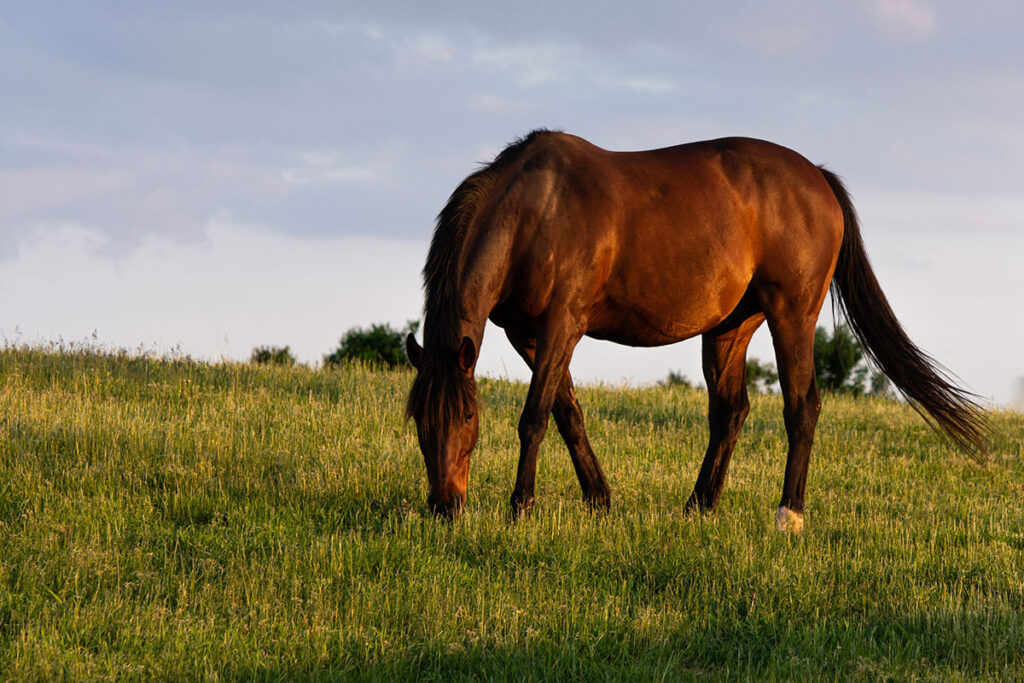
Dopamine and Equine Insulin Regulation
Scientists recently examined the role of dopamine in horses with PPID and ID, as well as how pergolide affects dopamine receptors to treat metabolic problems.
News and issues for equine health professionals

Scientists recently examined the role of dopamine in horses with PPID and ID, as well as how pergolide affects dopamine receptors to treat metabolic problems.

Owner-provided information and a thorough lameness examination can help veterinarians start meaningful investigations into front foot lamenesses.

Even with better diagnostics and treatments, hands-on exams and movement assessments remain essential for finding the source of back pain in horses.

Learn about common joint issues that concern horse owners and what preventive and therapeutic approaches are available. Read more in the Spring 2025 issue of The Horse.

Two experts review how MRI, CT, and PET can provide precise answers for equine practitioners, contributing to more specific treatments and better prognoses.

Two veterinarians navigate the ethical and medical intricacies of keeping sport horses sound and pain-free.

Consider the benefits of including veterinarians in your horse’s preventive care this spring.

Training horses to maximize their abilities comes with potential pitfalls, but consistent attention to detail can help prevent most issues.

Understanding new research developments, sponsored by Nutramax Laboratories Veterinary Sciences, Inc.

Here’s how one veterinarian localizes lameness to the horse’s stifle, treats stifle injuries, and performs surgery when necessary.

Experts described 6 new studies that made significant impacts on equine musculoskeletal problem diagnosis and treatment in 2024.

Here’s how veterinarians manage problems such as foal diarrhea, dehydration, and milk replacement challenges on the farm.

Researchers believe PPID (formerly called equine Cushing’s disease) might have negative effects on mare fertility but need more research to understand why.

Testing asymptomatic horses for EHV-1 at equestrian events is crucial for early detection and preventing potential outbreaks.

Milne lecturer Dr. Lisa Fortier advises veterinarians to evaluate a horse’s overall health before using orthobiologics and to treat injuries early for the best outcomes.

Researchers found that a schizophyllan and hyaluronan supplement might help veterinarians and owners manage EGUS.
Stay on top of the most recent Horse Health news with
"*" indicates required fields